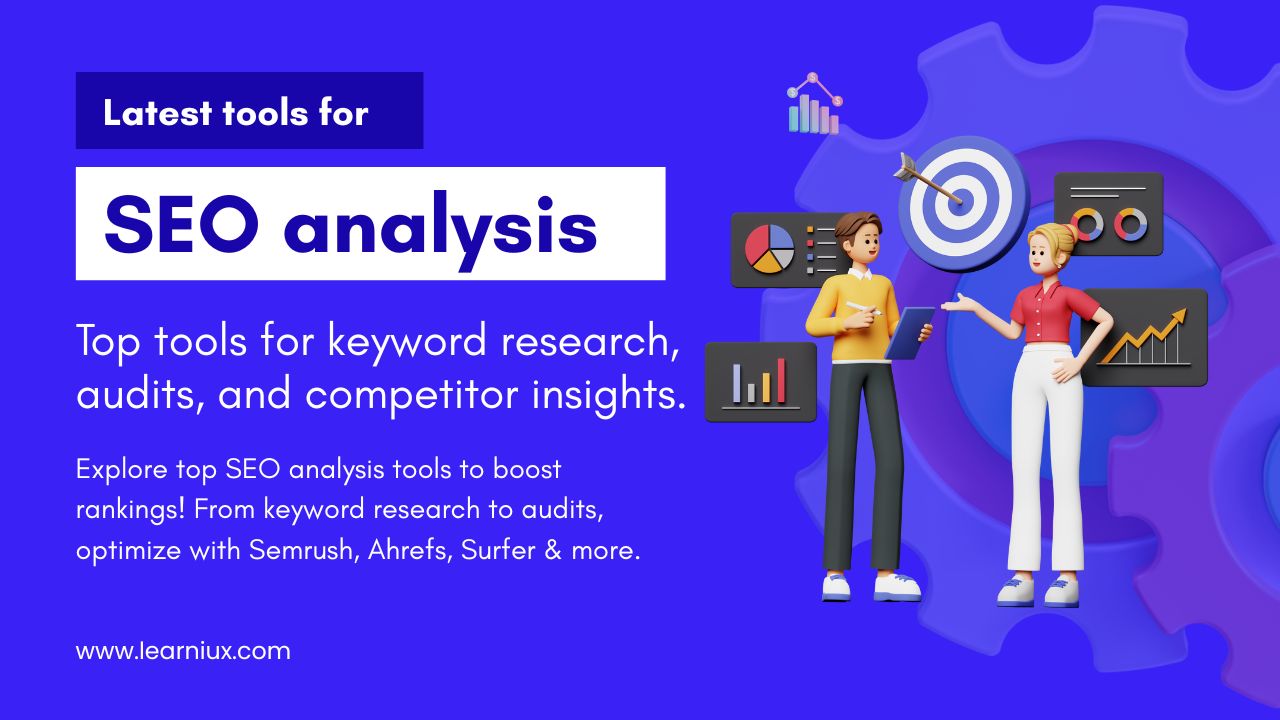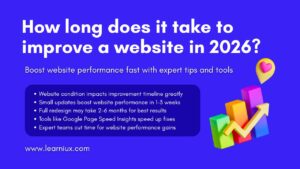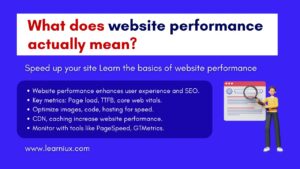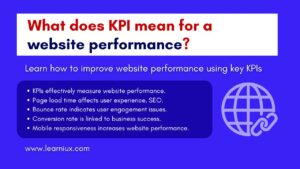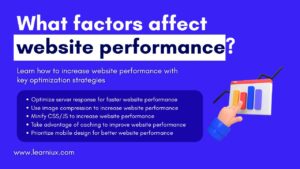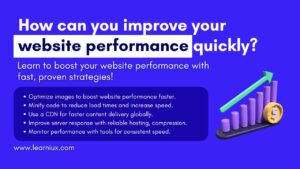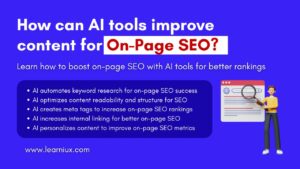Introduction
Search engine optimization (SEO) is the key to digital success. As search engines continue to evolve, businesses and marketers need advanced tools to stay competitive. The latest SEO analysis tools provide actionable insights into keyword performance, technical site health, backlink profiles, and competitor strategies. These tools enable users to optimize content, improve rankings, and drive organic traffic. This comprehensive guide explores the most effective SEO analysis tools available, providing detailed insights into their features, benefits, and applications. Whether you’re a small business owner, content creator, or seasoned SEO professional, this article will help you navigate the landscape of modern SEO tools to achieve measurable results.

Why SEO Analysis Tools Matter
SEO analysis tools are essential for understanding how a website performs in search engine results pages. They provide data-driven insights into areas such as keyword rankings, on-page optimization, technical issues, and competitor performance. Using these tools, marketers can identify opportunities, solve problems, and create strategies that align with search engine algorithms. The right tools save time, reduce guesswork, and deliver measurable results. In an era where AI and machine learning are shaping SEO, these tools are more sophisticated than ever, with features like predictive analytics, content optimization suggestions, and real-time performance tracking.
Top SEO Analysis Tools for Comprehensive Insights
There are a variety of SEO analysis tools available on the market, each with unique strengths. Below, we dive into the leading platforms, highlighting their key features, use cases, and why they stand out in the crowded SEO tool landscape.
SEMrush as a Leading SEO Analysis Tool
SEMrush is a powerhouse in the SEO industry, known for its all-in-one capabilities. It offers a robust set of features, including keyword research, site audits, backlink analysis, and competitor tracking. The platform’s Keyword Magic tool helps users find high-potential keywords, while its Site Audit feature identifies technical issues that can hurt rankings. SEMrush also provides detailed reports on organic traffic, paid campaigns, and content performance, making it a favorite among agencies and enterprises.
One of SEMrush’s standout features is its competitive analysis tools. Users can analyze competitors’ keyword strategies, backlink profiles, and advertising tactics to uncover gaps and opportunities. The platform’s user-friendly interface and customizable dashboard make it accessible to beginners while providing the depth needed by advanced users. Additionally, SEMrush integrates with tools like Google Analytics and Google Search Console, streamlining workflows. Its regular updates ensure compatibility with the latest SEO trends like voice search optimization and AI-driven content strategies.
Ahrefs for In-Depth SEO Analysis Tools
Ahrefs is known for its backlink analysis and competitor research capabilities. Its Site Explorer tool allows users to dig deep into a website’s backlink profile, identifying link building opportunities and potential risks. Ahrefs’ Content Explorer helps marketers find trending topics and analyze the best-performing content in their niche. The platform also offers a Keyword Explorer tool, which provides detailed metrics on search volume, keyword difficulty, and clickthrough probability.
What sets Ahrefs apart is its ability to provide actionable insights. For example, its Content Gap tool identifies keywords that competitors rank for but your site doesn’t, enabling targeted content creation. Ahrefs also supports technical SEO with features like crawl reports and broken link detection. Its extensive database and frequent updates make it a reliable option for professionals aiming to dominate search rankings.
Surfer SEO as a Content Focused SEO Analysis Tool
Surfer SEO specializes in page optimization, making it a great tool for content creators and editors. Its AI-powered content editor analyzes top-ranking pages for target keywords and provides real-time suggestions for improving content structure, keyword density, and readability. Surfer’s SERP Analyzer provides insights into why certain pages rank higher, helping users improve their strategies.
The tool also includes a keyword research feature that identifies related terms and long-tail keywords to increase content relevance. Surfer’s audit tool evaluates existing pages and suggests improvements to boost rankings. Its integration with tools like Jasper and WordPress makes it a seamless addition to content workflows. For teams focused on creating high-quality, search optimized content, Surfer SEO is a game changer.
Screaming Frog for Technical SEO Analysis Tools
Screaming Frog is a desktop-based SEO crawler that excels at technical analysis. It crawls websites to identify issues such as broken links, duplicate content, missing meta tags, and slow loading pages. The tool provides a detailed overview of the site’s structure, making it easy to identify technical SEO issues that could be affecting performance.
Screaming Frog’s log file analyzer is particularly useful for understanding how search engine bots interact with a site. It helps users optimize crawl budgets and ensure that important pages are indexed. The tool’s ability to handle large websites and export data in a variety of formats makes it a key tool for technical SEO professionals. While it may not have the slick interface of cloud-based tools, its depth and accuracy for site audits are unmatched.
Google Search Console as a Free SEO Analysis Tool
Google Search Console is a free, essential tool for any website owner. It provides direct insight into how your site is performing, including search performance, index status, and mobile usability. Performance reports show which queries are driving traffic, while the URL Inspection tool helps diagnose indexing issues. Google Search Console also alerts users to security issues and manual penalties.
One of its key benefits is its integration with other Google tools, such as Google Analytics. This provides holistic visibility into site performance. While it lacks the advanced features of paid tools, Google Search Console is an essential starting point for beginners and a valuable resource for professionals looking to validate their strategies with Google’s data.
Moz Pro as a Versatile SEO Analysis Tool
Moz Pro offers a suite of tools for keyword research, link building, and site audits. Its Keyword Explorer provides accurate search volume and difficulty metrics, while the Link Explorer analyzes backlink profiles. Moz’s On Page Grader evaluates content for optimization, and its Site Crawl feature identifies technical issues.
Moz is known for its user-friendly interface and educational resources, making it ideal for those new to SEO. Its Domain Authority metric is widely used to assess a website’s ranking potential. Moz Pro’s integration with Google Analytics and its focus on local SEO make it a strong option for small businesses and agencies.
SE Ranking for Affordable SEO Analysis Tools
SE Ranking is a cost-effective alternative to premium tools like Semrush and Ahrefs. It offers features like keyword tracking, competitor analysis, and website audits. Its keyword suggestion tool helps identify less competitive keywords, while the backlink checker monitors link quality. SE Ranking’s white label reporting and team collaboration features make it popular among agencies.
The platform’s affordability doesn’t compromise on its performance. It provides accurate data and customizable reports, making it suitable for businesses of all sizes. SE Ranking’s cloud-based interface ensures accessibility, and its regular updates stay in line with SEO trends.
Keyword Insights for AI-Driven SEO Analysis Tools
Keyword Insights uses AI to simplify keyword research and content planning. Its keyword clustering feature groups related terms, helping users create comprehensive content that targets multiple queries. The tool also provides insights into search intent, ensuring that content matches user expectations.
Keyword Insights integrates with tools like Google Search Console and Surfer SEO, increasing its usefulness in content workflows. Its focus on automation makes it ideal for teams looking to efficiently scale their SEO efforts. The platform’s intuitive design and actionable insights make it a rising star in the SEO tool market.
Other Emerging SEO Analysis Tools
Many other tools are gaining popularity due to their innovative features. Ubersuggest offers affordable keyword research and competitor analysis that is ideal for small businesses. RankMath provides a WordPress plugin with built-in SEO recommendations, perfect for bloggers. ChatGPT and other AI tools are increasingly being used to brainstorm content ideas and optimize meta descriptions. These emerging tools complement established platforms, providing flexibility for a variety of SEO needs.
| Tool Name | Key Features | Pricing Model | Best For |
|---|---|---|---|
| Semrush | Keyword research, backlinks, audits | Subscription based | Agencies, enterprises |
| Ahrefs | Competitor analysis, site explorer | Paid plans | SEO professionals |
| Surfer SEO | Content editor, SERP analyzer | Freemium | Content creators |
| Screaming Frog | SEO spider, log file analysis | Free and paid versions | Technical SEO experts |
| Google Search Console | Performance reports, URL inspection | Free | All users |
| Moz Pro | Keyword explorer, link analysis | Subscription based | Small businesses, beginners |
| SE Ranking | Keyword tracking, white label reports | Affordable plans | Agencies, SMBs |
| Keyword Insights | Keyword clustering, AI insights | Subscription based | Content strategists |
How to Choose the Right SEO Analytics Tools
Choosing the best SEO analytics tools depends on your goals, budget, and expertise. Consider the following factors:
- Budget: Free tools like Google Search Console are great for beginners, while premium tools like Semrush offer advanced features for professionals.
- Features: Identify your priorities, such as keyword research, technical audits, or content optimization, and choose tools that excel in those areas.
- Ease of Use: Tools like Moz and SE Ranking are beginner-friendly, while Ahrefs and Screaming Frog cater to advanced users.
- Scalability: For larger teams or enterprises, tools with collaboration features and white label reporting, such as Semrush and SE Ranking, are ideal.
- Integration: Make sure the tool integrates with your existing stack, such as Google Analytics, WordPress, or a CRM system.
Start with free trials or freemium versions to check compatibility. Many tools offer scalable plans, allowing you to upgrade as your needs grow.
Benefits of combining multiple SEO analysis tools
Using a single tool may not cover all aspects of SEO. Combining tools can provide a more comprehensive strategy. For example:
- Connect Ahrefs with Surfer SEO to research keywords and optimize content for those terms.
- Use Screaming Frog for technical audits along with Google Search Console to validate solutions.
- Combine SEMrush’s competitor analysis with Keyword Insights clustering for a robust content strategy.
This approach ensures that no aspect of SEO is overlooked, from technical health to content relevance.
Practical Uses of SEO Analysis Tools
SEO analysis tools serve a variety of purposes, depending on your role and goals. Here are some practical uses:
- Keyword Research: Tools like SEMrush and Ahrefs help identify high-value keywords to target, improving organic traffic.
- Content Optimization: Surfer SEO and Moj Pro provide suggestions for enhancing page elements like headings, meta tags, and keyword density.
- Technical SEO: Screaming Frog and Google Search Console diagnose issues like broken links, slow load times, and indexing errors.
- Competitor Analysis: Ahrefs and SEMrush reveal competitor strategies, helping you identify gaps and opportunities.
- Performance Tracking: Google Search Console and SE Rankings track rankings, clicks, and impressions over time.
By aligning tool usage with specific goals, you can maximize their impact on your SEO efforts.
Future Trends in SEO Analysis Tools
The SEO landscape is rapidly evolving due to advancements in AI, machine learning, and search engine algorithms. Here are the key trends shaping the future of SEO analysis tools:
- AI Driven Insights: Tools like Surfer SEO and Keyword Insights are using AI to provide predictive analytics and automated recommendations.
- Real-time data: Platforms are moving towards real-time tracking to reflect the dynamic nature of search rankings.
- Voice search optimization: With the rise of voice assistants, tools are incorporating features to optimize for conversational queries.
- Mobile-first analytics: As mobile searches dominate, tools are prioritizing mobile usability and performance metrics.
- Integration with other channels: SEO tools are increasingly integrating with social media, email marketing, and advertising platforms for a holistic digital strategy.
Staying updated on these trends ensures that your SEO tools remain relevant and effective.
Challenges when using SEO analysis tools
While SEO tools are powerful, they come with challenges:
- Learning curve: Tools like Ahrefs and Screaming Frog can be complex for beginners.
- Price: Premium tools like Semrush and Moz Pro can be expensive for small businesses.
- Data overload: The amount of data can be overwhelming without a clear strategy.
- Algorithm changes: Tools have to adapt to search engine updates frequently to remain accurate.
To overcome this, start with user-friendly tools, invest in training, and focus on actionable metrics.
Best Practices for Making the Most of SEO Analysis Tools
To get the most out of your SEO tools, follow these best practices:
- Set clear goals: Define what you want to achieve, such as higher rankings, more traffic, or better conversions.
- Regular audits: Use tools like Screaming Frog and SEMrush for monthly site audits to catch problems early.
- Track progress: Monitor key metrics like rankings, traffic, and backlinks to measure success.
- Stay up to date: Follow tool blogs and SEO communities to learn about new features and trends.
- Experiment: Test different tools and strategies to find what works best for your site.
Conclusion
The right SEO analytics tools can transform your digital strategy, providing insights that drive growth. From SEMrush’s comprehensive suite to Surfer SEO’s content focus, each tool offers unique strengths. By combining tools, staying up-to-date on trends, and following best practices, you can optimize your site for maximum visibility and engagement. Experiment with free trials, align tools with your goals, and continually refine your approach to stay ahead in the ever-changing world of SEO.
FAQs
What are SEO analysis tools and why are they important?
SEO analysis tools are software platforms that help optimize websites for better search engine rankings. They provide insights into keyword performance, technical issues, backlink profiles, and competitor strategies. These tools are important because they simplify complex data, allowing marketers to make informed decisions. By identifying strengths and weaknesses, they help improve organic traffic and user engagement. Tools like SEMrush and Ahrefs offer comprehensive features, while free options like Google Search Console provide essential insights. Without these tools, optimizing a site can be time-consuming and less effective. They save effort by automating tasks like site audits and keyword research. Overall, SEO analysis tools are crucial to staying competitive in the digital landscape.
Which SEO analysis tool is best for beginners?
For beginners, Moj Pro and Google Search Console are great starting points due to their user-friendly interfaces. Moj Pro provides intuitive tools for keyword research, site audits, and link analysis, as well as educational resources to guide new users. Google Search Console is free and provides direct insight into search performance and indexing issues. Both tools simplify complex SEO concepts, making them accessible to those new to optimization. They also integrate with other platforms like Google Analytics for a seamless experience. Beginners can start with the free versions and upgrade as they gain confidence. These tools help users build a strong SEO foundation without overdoing it. Their clear reports and actionable suggestions make it easy to learn.
How do SEO analysis tools help with keyword research?
SEO analysis tools streamline keyword research by identifying high-potential terms to target. Tools like SEMrush and Ahrefs provide metrics like search volume, keyword difficulty, and clickthrough rate. They suggest relevant keywords and long-tail phrases to increase content relevance. For example, Ahrefs’ Keyword Explorer reveals competing keywords, while SEMrush’s Keyword Magic tool uncovers specific opportunities. These tools also analyze search intent, ensuring that content matches user needs. By grouping keywords, tools like Keyword Insights help create a comprehensive content plan. This saves time and improves ranking opportunities. Ultimately, they enable data-driven decisions for better organic reach.
Can free SEO analysis tools be effective for small businesses?
Yes, free SEO analysis tools like Google Search Console and Ubersuggest are extremely effective for small businesses. Google Search Console provides insights into search performance, indexing issues, and mobile usability, all for free. Ubersurge provides basic keyword research and competitor analysis, which is ideal for budget-conscious businesses. These tools help identify serious issues like broken links or poor mobile performance. While they lack the advanced features of paid tools, they cover essential SEO needs. Small businesses can use them to optimize content and track progress. Combining free tools with affordable options like SE Ranking can boost results. They are a practical starting point for teams with limited resources.
How is Surfer SEO different from other SEO analysis tools?
Surfer SEO specializes in on-page content optimization, which is different from comprehensive tools like SEMrush or Ahrefs. Its content editor analyzes top-ranking pages and suggests improvements for keyword density, structure, and readability. Unlike tools that focus on backlinks or technical audits, Surfer prioritizes content quality. It uses AI to provide real-time recommendations, making it ideal for writers and editors. SERP Analyzer helps you understand why competitors rank higher. Surfer integrates with tools like WordPress, streamlining your content workflow. While it lacks deep technical SEO features, its focus on content makes it unique. It’s best for teams aiming to create search-optimized articles.
What role does Screaming Frog play in SEO analysis tools?
Screaming Frog is a desktop-based SEO crawler focused on technical analysis. It scans websites to identify issues like broken links, duplicate content, and missing meta tags. Its log file analyzer helps you understand how search engine bots interact with your site by optimizing your crawl budget. Unlike cloud-based tools, it offers in-depth, customizable audits for larger websites. Screaming Frog is ideal for technical SEO professionals who need accurate data. It also exports reports for easy sharing with the team. It may seem complex to beginners, but its accuracy is unmatched for site health checks. It complements tools like Google Search Console for comprehensive technical SEO.
How can SEO analysis tools improve competitor analysis?
SEO analysis tools like Ahrefs and SEMrush excel at competitor analysis by revealing the strategies behind their rankings. They analyze competitors’ keywords, backlink profiles, and high-performing content. For example, Ahrefs’ Content Gap tool identifies keywords that competitors rank for but your site doesn’t. SEMrush’s Competitive Research Toolkit tracks competitors’ organic and paid strategies. These insights help you find opportunities to outperform your competitors. The tools also show competitors’ traffic sources and content gaps, guiding your strategy. By understanding their strengths, you can refine your approach. This data-driven approach ensures a competitive edge in search rankings.
Are SEO analysis tools good for content creators?
Of course, SEO analysis tools like Surfer SEO and Keyword Insights are built for content creators. Surfer’s Content Editor provides real-time suggestions for optimizing articles for search engines. Keyword Insights groups related terms, helping creators create a comprehensive content plan. Tools like Moz Pro offer on-page grading to improve readability and keyword usage. These platforms ensure that content aligns with search intent, increasing visibility. They also save time by automating keyword research and optimization tasks. Content creators can create high-quality, SEO-friendly articles without deep technical knowledge. Integrating these tools with writing platforms increases efficiency.
How do SEO analysis tools adapt to search engine algorithm changes?
SEO analysis tools adapt to algorithm changes through regular updates and AI integration. Platforms like Semrush and Ahrefs monitor search engine trends, ensuring that their data reflects current ranking factors. They include features for emerging trends like voice search and mobile optimization. For example, Surfer SEO updates its content editor to align with Google’s latest content quality guidelines. The tools also provide alerts for algorithm changes, helping users adjust their strategies. By analyzing real-time data, they maintain accuracy. Developers collaborate with SEO communities to stay ahead of changes. This ensures that the tools remain effective even as algorithms evolve.
What are the benefits of combining multiple SEO analysis tools?
Combining multiple SEO analysis tools creates a comprehensive strategy that addresses different aspects of optimization. For example, Ahrefs excels in backlink analysis, while Surfer SEO focuses on content optimization. Screaming Frog handles technical audits, and Google Search Console validates performance with Google’s data. Using them together ensures that no SEO area is overlooked. This approach improves accuracy, as the tools cross-verify insights. It also saves time by automating tasks on the platform. Teams can efficiently scale tasks from keyword research to technical solutions. Ultimately, combining the tools increases rankings, traffic, and engagement.

